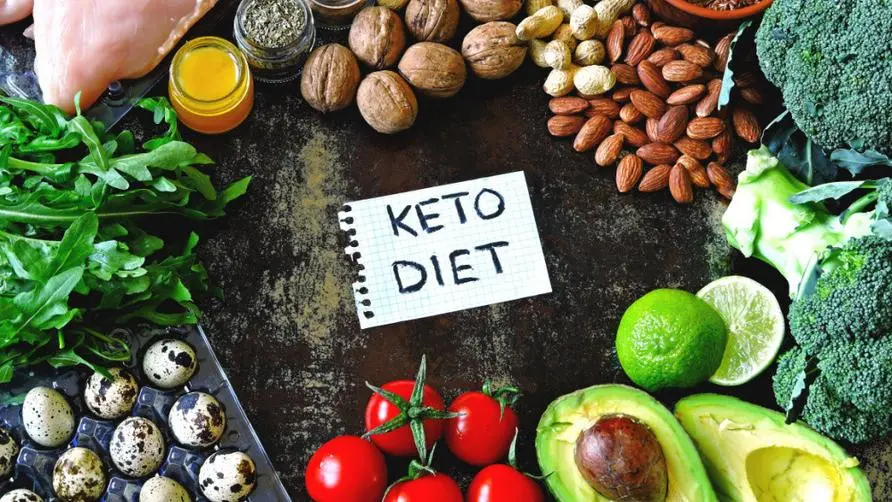Does weight management always fail? To successfully lose weight, you must first understand three things: understand yourself, calculate energy, and increase consumption.

Obesity has become an “epidemic”. Why do people eat too much?
The proportion of the “obese” population has increased rapidly over the past half century, and some experts believe that obesity has become an “epidemic” public health problem. Being overweight and obese significantly increases the risk of various diseases, including diabetes, cancer, cardiovascular disease, hypertension, fatty liver disease, bone and joint abnormalities, and degenerative arthritis. It is particularly important to note that the blood cholesterol and lipoproteins in obese people are usually too high, which can easily lead to fat deposition in the heart, causing coronary artery sclerosis, myocardial infarction or angina, which may be life-threatening.
The causes of obesity can be divided into two categories: “morbid obesity” and “simple obesity”. Morbid obesity may be caused by lesions in the hypothalamus, which controls appetite, or diseases such as thyroid dysfunction, Cushing’s disease, and islet cell tumors, which lead to increased energy storage or overeating. General obesity is believed to be related to genetic constitution, eating habits, psychological factors, social environmental factors, lack of exercise and other phenomena.
On the other hand, hormones are a possible cause of satiety and obesity. Some studies have pointed out that “Ghrelin” will rise before a meal and decrease rapidly after a meal. It has the function of regulating appetite and food intake control, gastrointestinal motility, Gastric acid secretion and other effects. Another hormone, “leptin” (Letin), increases in appetite and is considered to be the key to satiety signals. Although some obese people have leptin in their bodies, they may not be able to suppress hunger due to defects in leptin receptors. Sensation, resulting in overeating.
Energy balance is the key to weight and the three key factors of obesity
Although there are many causes of obesity, “energy balance” is still the key to maintaining a healthy weight. The difference between the calories the body absorbs from food and metabolism, digestion, absorption, sports nutrition and physical activity is energy balance. When there is excess energy storage, it will cause weight gain, which is called “positive energy balance”. On the contrary, if the energy consumed is greater than the energy taken in, weight loss will occur, which is called “negative energy balance.”
Since the body’s basal metabolic rate decreases by approximately 1%-2% every 10 years after the age of 30, many adults unconsciously enter a “positive energy balance” and gain weight year by year. However, age is not the main reason for obesity and overweight. Overeating, too little physical activity, and slow metabolism are the real reasons why most people become obese.
For every 3,500 kcal increase in calorie consumption, the body stores approximately 0.45 kilograms more fat. On the contrary, walking for 30 minutes a day (burning 172 calories) can eliminate 0.45 kilograms of fat in 20 days, showing that caloric balance is the core of weight management.
How to improve weight management? 3 tips to help with weight control
1. Record eating patterns
Recording when you want to eat, how much time you spend eating, what foods you eat, whether you watch TV, movies or TV series while eating, etc., will help you understand yourself. What external factors influence your eating habits? Through food records, you can find out the triggers and events that lead to overeating or even overeating, and consciously adjust your eating plan.
For ordinary people, the simpler standard healthy diet distribution principle can be referred to “My Plate”: 1/2 of each meal is vegetables, and protein and starch each account for 1/4, which can meet the basic healthy diet standards. Experts remind that the diet method with the highest success rate for weight loss is to be able to choose food freely without sacrificing the things you like. Recording your diet is often the most important step to improve the success rate of weight loss.
2. Calculate energy balance
As mentioned above, too much “positive energy balance” will cause the body to store more fat, thereby increasing weight. However, everyone’s energy balance calculation formula is different. The reason is “basal metabolic rate”. " (BMR), “resting metabolic rate” (RMR), “exercise metabolic rate” (EMR), and differences in body composition such as lean body tissue and muscle mass.
Overall, everyone’s basal metabolism differs by about 25%-30%. For example, people with more lean body tissue usually have a higher basal metabolic rate. You can use public calculations to understand your basal metabolic rate and recommended daily caloric intake, and better understand your energy balance to help maintain weight stability.
In addition, some foods, such as celery, produce more calories during the digestion process than the thermogenic effect of eating (TEF). Therefore, they become “negative calorie foods” and are a good partner during weight control. Including chicken breast, protein and fish, all have a higher thermogenic effect of food, which is why they are classified as “healthy foods”.
3. Increase energy consumption
Now that we know that increasing basal metabolic rate, resting metabolic rate and exercise metabolic rate can help burn calories, what methods are effective? The answer is of course “exercise”. By increasing activity and muscle mass, you can maintain long-term physical health. The body’s muscle-to-fat ratio is an important reference value. Non-fat tissue (muscle) has a higher metabolic rate and consumes more calories even at rest. On average, every 0.45 kilogram of muscle gain consumes 20-50 more calories per day. Increasing the intensity and duration of daily activity will have a greater impact on caloric expenditure.
Generally speaking, by consuming an additional 100-300 calories through exercise in daily life and controlling energy intake, you can achieve sustained and stable weight loss. It is worth noting that exercise has comprehensive benefits for physical health, including cardiovascular health, brain health, and cancer risk.
The generally accepted recommendation in today’s medical science is that adults should engage in 150 minutes of moderate-intensity aerobic exercise every week, regardless of the type of exercise. For example, walking briskly for 5 kilometers a day is as effective as aerobic dancing and jogging. Strength training can increase lean tissue and consume Fat. The most important thing is “continuous exercise”. Choosing the type of exercise that can be sustained is the best exercise option for individuals.
References:
Contemporary Nutrition, Anne M. Smith/ Angela L. Collene
Health Promotion, Rebecca J. Donatelle
Introduction to Clinical Medicine, Hong Minyuan
Further reading:





